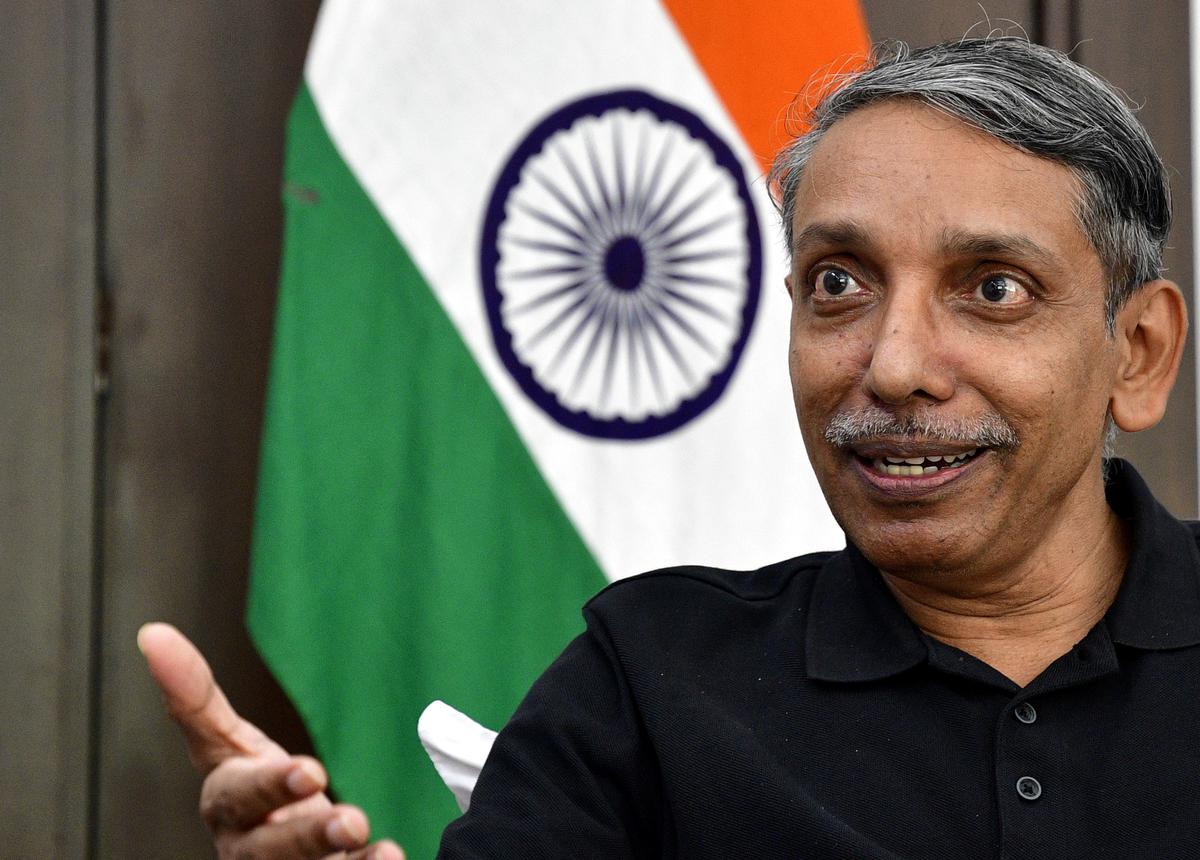SOURCE: THE HINDU



UGC Chairman Jagadesh Kumar told The Hindu that the regulatory body was aiming at preparing 1,500 books in regional languages in the next one year across different disciplines
Early initiation of learning a mother tongue is important for a child’s creative thinking, while English can be learnt at any time in life for use as a communication tool, according to University Grants Commission (UGC) Chairman M. Jagadesh Kumar.
The teaching of regional languages, however, could not be done at the cost of English in a globalised world, he said.
“Suppose I give you a task and say you have to reach a destination, but you don’t know how to reach there. I give you a cycle to reach the destination, but you don’t know how to cycle. Now, you have to do two tasks — you have to learn how to cycle as well as ask people for directions to reach the destination. On which will you focus in order to be a good learner? That is the dilemma a child faces? We want to remove that dilemma and let the child think naturally in their own mother tongue, forget about English. You can learn it at any time,” Mr. Kumar told The Hindu in an interview.
However, English could not be ignored either.
“There is a misunderstanding that needs to be removed that when we talk of Indian languages it is at the cost of English. Today, we are a globally connected community and if we want to communicate with the rest of the world, it is a practice we have to [continue] and our students need to be trained to become proficient in using English as a communication tool,” the Chairman explained.
‘Colonial mindset’
But one of the challenges was “our colonial mindset” and there was a need to change our attitudes so that when someone asked a question in a class in a regional language they should not feel inferior, he said.
The UGC was in talks with various regulatory bodies such as Bar Council of India for promotion of vernacular languages and a committee had been formed under former Chief Justice of India S.A. Bobde which would look into how institutions could provide legal education in local languages. The All India Council of Technical Education too had introduced courses in regional languages in 10 colleges.
It was also working with the High-Powered Committee on Indian Language Development established by the Ministry of Education to identify experts as well as 10-12 disciplines so that books could either be translated or written afresh.
The UGC Chairman said that the regulatory body was aiming at preparing 1,500 books in regional languages in the next one year across different disciplines.
Mr. Kumar said that this would lead to two things — either institutes would adopt a regional language as a medium of instruction or it would serve as a learning aid for students in English medium who may not be proficient in the language.
In response to a question whether classroom instruction in regional languages was better suited for State Universities instead of Central Universities, where a large number of students came from around the world the Chairman said there was artificial intelligence-based technology available to enable real-time translations that would be seen in classrooms in the future.
The National Education Policy 2022 lays emphasis on promoting mother tongue which should be a medium of instruction at least till class 5 or class 8 and after which it should be offered as a language. It also urges universities to develop study material in regional languages.

